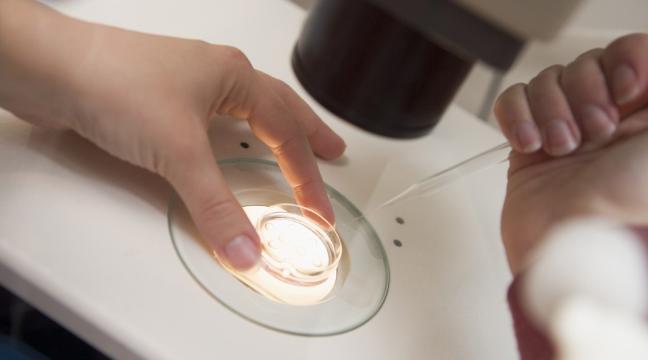
A mother who lost her daughter to cancer, wants to use her dead daughter’s frozen eggs to impregnate herself, according to her late daughter’s wishes.
A High Court battle is looming where the 59 year old woman and her husband are challenging an independent regulator’s refusal to allow them to take the eggs to a US fertility clinic.

BYPASS THE CENSORS
Sign up to get unfiltered news delivered straight to your inbox.
You can unsubscribe any time. By subscribing you agree to our Terms of Use
Latest Video
The couple claim the dying wish of their daughter who passed away in her late 20s from bowl cancer, was to have her eggs fertilised by a donor sperm, and implanted into her own mother’s womb.
The Guardian reports:
A high court judge was told how the daughter, while “suffering terribly” from terminal cancer, never wavered in her wish that her mother should carry her child after her death and would have been “devastated” if she had known her eggs could not be used.
In what may be the first case of its kind in the world, the 59-year-old mother, referred to as Mrs M for legal reasons, is challenging an independent regulator’s refusal to allow her and her 58-year-old husband to take her daughter’s eggs to a US fertility treatment clinic.
The couple say it was the dying wish of their daughter, an only child who died of bowel cancer in 2011 while in her late 20s, that her eggs be fertilised by donor sperm and implanted into her own mother’s womb.
The daughter initially had her eggs frozen after being diagnosed with cancer in the hope that she herself could have children in the future, but lost her battle for life.
Her parents want to export the eggs to New York, where a clinic has indicated it is willing to provide fertility treatment at an estimated cost of up to £60,000.
Jenni Richards QC, appearing for Mrs M, said the family’s identity should be kept secret because the case raised “very delicate, sensitive and personal issues” and in particular it was important to protect the identity of “an as yet unborn child”.
Richards said the daughter, referred to as A, had grown up in “a close and happy family unit”, and having her own family was incredibly important to her. But she was diagnosed with bowel cancer at the age of 23 and had no boyfriend in her last years.
Richards said: “From the outset, one of the issues that troubled A were the implications of her illness in terms of her ability to have a child.”
The QC read from a statement from Mrs M in which she described how her daughter told her she knew she was going to die. She said she wanted her mother to carry her child and for her parents to raise the child, knowing it would be “safe”.
Last year the Human Fertilisation and Embryology Authority (HFEA) refused to issue a “special direction” allowing the eggs to be removed from storage in London and sent to the US. Its statutory approvals committee said there was insufficient evidence to show that the daughter wanted her mother to use donor sperm to carry her child.
Mrs M is asking Mr Justice Ouseley, sitting at London’s high court, to rule that the decision was unlawful and an interference with the family’s human rights.
The HFEA says there was no clear, written consent and it was entitled to use its discretion to refuse to issue a special direction.
The daughter completed a form that gave consent for the eggs to be stored for use after her death, but failed to fill in a separate form that indicated how she wished the eggs to be used. This technically meant her consent became invalid.
The application for permission to export the sperm was made to the HFEA by IVF Hammersmith, which is based within Hammersmith hospital in west London and which is currently storing the eggs.
Richards argued that “disproportionate and unreasonable” emphasis had been placed by the HFEA on the fact that the daughter did not sign the additional form specifying the use of her eggs.
The family’s right to have their private and family life protected under Article 8 of the European Convention on Human Rights had been violated by the “too restrictive” way the authority had used its powers, even though the daughter had made her wishes clear to her mother and others, said Richards.
In 2009 a cousin had announced to A that she was pregnant and A had told her: “I have already got my babies. They are on ice.”
Mrs M stated her daughter had told her as her health deteriorated: “They are never going to let me leave this hospital mum – the only way I will get out of here will be in a body bag.
“I want you to carry my babies. I didn’t go through IVF to save my eggs for nothing. 
I want you and dad to bring them up, they will be safe with you. I couldn’t have wanted for better parents. I couldn’t have done this without you.”
Mrs M’s statement added: “I have absolutely no doubt in my mind that, as far as A was concerned, her eggs held a life force and were living entities in limbo waiting to be born.
“She was clear that she wanted her genes to be carried forward after her death. She had suffered terribly and this was the one constant in her remaining years from which she never wavered.”
An aunt had also said A had told her that she wanted her mother, and no one else, to be her surrogate – “and was quite adamant she should do so post death as well”, said Richards.


